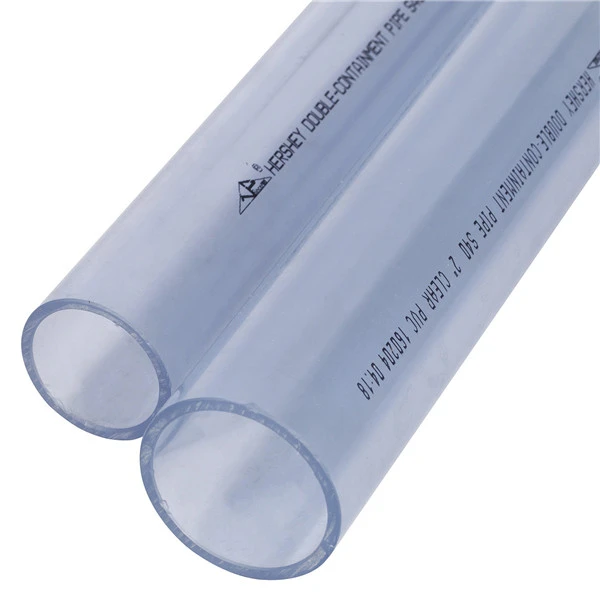Nën . 20, 2024 03:15 Back to list
hdpe conduit pipe
Understanding HDPE Conduit Pipe Benefits and Applications
High-Density Polyethylene (HDPE) conduit pipes are increasingly becoming the material of choice for various applications in construction and electrical installations. Renowned for their durability and flexibility, HDPE pipes continue to revolutionize the piping industry. This article explores the attributes, benefits, and primary applications of HDPE conduit pipes, presenting a comprehensive understanding of why they are favored in so many sectors.
What is HDPE?
High-Density Polyethylene (HDPE) is a thermoplastic polymer made from petroleum. Its molecular structure is characterized by minimal branching, leading to a dense arrangement of polymer chains. This unique composition provides HDPE with its superior strength-to-density ratio. The material is lightweight yet incredibly strong, making it suitable for use in a range of applications, including the manufacturing of conduit pipes.
Benefits of HDPE Conduit Pipe
1. Durability HDPE conduit pipes are highly resistant to impact, abrasion, and corrosion. This resilience makes them ideal for use in harsh environments, as they can withstand extreme temperatures and chemical exposure without degrading.
2. Flexibility One of the standout features of HDPE is its flexibility. It can bend without breaking, allowing for easy installation around obstacles and through difficult terrain. This flexibility significantly reduces the need for joints and fittings, consequently minimizing potential leak points.
3. Low Friction The interior surface of HDPE pipes is smooth, leading to a reduction in friction when fluids are transported. This characteristic not only enhances flow efficiency but also reduces energy costs associated with pumping.
4. Cost-Effectiveness While the initial investment in HDPE conduit pipes can be higher than other materials, their longevity and low maintenance requirements result in lower overall costs. The ease of installation due to their lightweight nature also reduces labor expenses.
5. Environmental Impact HDPE is a recyclable material, contributing to reduced environmental impact. Additionally, the longevity of HDPE pipes reduces the frequency of replacements, leading to less waste and less disruption of the surrounding ecosystem.
hdpe conduit pipe

Applications of HDPE Conduit Pipe
HDPE conduit pipes are widely used across various industries, demonstrating versatility in their applications.
1. Electrical Conduit One of the primary uses of HDPE conduit is in electrical installations. As a protective casing for electrical wires, HDPE conduits safeguard against physical damage and environmental factors. They are particularly valuable in underground installations, where moisture and soil conditions can pose significant risks to electrical systems.
2. Telecommunications HDPE conduit pipes are extensively used in telecommunications for the protection of fiber optic cables. The smooth inner surface ensures minimal friction and protection against external influences, thus maximizing the lifespan and performance of telecommunications infrastructure.
3. Water and Wastewater Management In both residential and municipal applications, HDPE conduits serve critical roles in water distribution and wastewater management. Their resistance to corrosion makes them ideal for transporting various liquids, while their durability ensures longevity in challenging environments.
4. Underground Utility Installations The flexibility and resilience of HDPE make it perfect for underground utility installations, where unexpected challenges can arise. Its ability to navigate around obstacles without damage provides a significant advantage over more rigid materials.
5. Drainage Systems HDPE pipes are also utilized in drainage systems due to their excellent flow characteristics and durability against soil erosion. They can efficiently manage surface water and reduce the risk of flooding in urban environments.
Conclusion
HDPE conduit pipes represent a significant advancement in piping technology, offering an array of benefits that traditional materials cannot match. Their durability, flexibility, and low maintenance requirements make them suitable for a multitude of applications, particularly in the electrical and telecommunications sectors. As the demand for efficient and environmentally friendly piping solutions continues to grow, HDPE conduit pipes are poised to remain at the forefront of modern infrastructure development, paving the way for a more resilient future.
-
Durable PP Rigid Sheet: Lightweight, Chemical Resistant Solutions
NewsAug.21,2025
-
PVC Grey Sheet for Extraction: Chemical Resistant & Durable
NewsAug.19,2025
-
Durable PVC Pipe Fittings for Plumbing & Irrigation Needs
NewsAug.18,2025
-
HDPE Steel Belt Reinforced Spiral Corrugated Pipe | High Strength
NewsAug.17,2025
-
HDPE Pipe Fittings: Durable, Leak-Proof Solutions
NewsAug.16,2025
-
Premium CPVC Sheet: High-Temp & Chemical Resistant Solutions
NewsAug.15,2025

